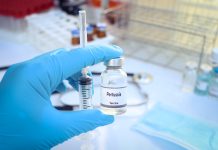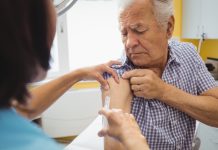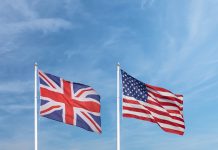The MHRA has executed a significant operation, seizing a staggering 7.7 million doses of illegal medicines and eliminating hundreds of illicit online listings. This operation, part of a global effort to combat the illegal supply of drugs and medical devices, underscores the scale of the issue
The Medicines and Healthcare Products Regulatory Agency (MHRA) has seized almost eight million doses of illegal medicines as part of Operation Pangea, aimed at tackling the illegal online sale of drugs and medical devices.
Interpol coordinates Operation Pangea and involves around 90 countries. It is the world’s largest initiative of its kind, bringing together health regulators, customs authorities, law enforcement agencies, and private sector partners to tackle the threat posed by criminal networks operating in the global supply of illegal medicines.
Seizing medication with an estimated value of £17.2 million
This year’s operation took place between December 2024 and May 2025. Working with law enforcement partners, the MHRA’s Criminal Enforcement Unit (CEU) seized 7.7 million doses of illicit medicines with an estimated value of £17.2m. Among the products seized in the UK were various prescription-only medications, including powerful painkillers, anti-depressants and sleeping pills.
The CEU also coordinated several arrest operations, denied gangs access to almost £1.4m in criminal profits, and removed 367 websites and social media accounts offering medical products to the public illegally.
Andy Morling, who heads the MHRA’s Criminal Enforcement Unit (CEU), said: “Criminals trade in illegal medicines for no other reason than to make money. Not only are these people breaking the law, but they also have no regard for your health.
Buying medicines from unverified sources, online or elsewhere, means there is no guarantee that the products are safe or effective. Some can contain dangerous or illegal ingredients that could result in severe illness, addiction or even death.
People also need to be aware that turning to illegal online sellers can leave them exposed to bank fraud and identity theft.
This year’s operation is another example of how the MHRA and its international partners are joining forces to tackle the criminal gangs causing so much misery and harm around the world.”
The global operation seizes 50.4 million doses of medications
In total, the INTERPOL operation resulted in 50.4m doses of illegal medicines worth USD 65m and saw the arrest of 769 suspects. The seizures and arrests are the largest in the operation’s 17-year history.
Nervous system agents, including psychostimulants, anti-anxiety drugs, and medications for Parkinson’s disease, topped the list as the most seized product type, with erectile dysfunction medicines the second highest. Other commonly seized product types include anabolic steroids, anti-diabetic drugs, anti-smoking products, dermatological agents, health supplements, herbal products and psychotherapeutic agents.
David Caunter, Director pro tempore of Organized and Emerging Crime at INTERPOL, said: “Fake and unapproved medications are a serious risk to public health. They can include dangerous or illegal ingredients, potentially resulting in severe illness or even death.
“The rapid growth of online platforms has made it easier for these unsafe drugs to reach people as well as opening new opportunities for criminal networks to exploit.
“Working together through Operation Pangea, countries are taking action to protect people’s health and keep healthcare systems safe.”
Professor Tony Lawler, Head of Australia’s Therapeutic Goods Administration (TGA), said: “During this operation, the TGA assessed over 9,500 imports referred by the Australian Border Force and facilitated the seizure of over 5.2 million units of unlawfully imported therapeutic goods, including products that were found to be substandard or falsified.
This operational partnership represents a significant disruption of dangerous medicines from entering our community and diversion of profits from those that would usually benefit from the illegal sale and supply.”











